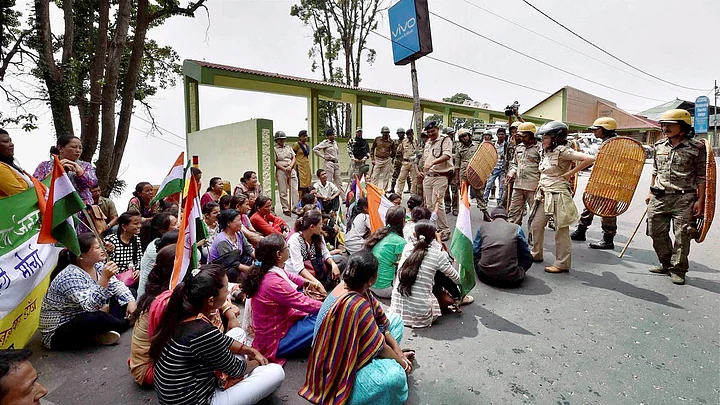Darjeeling has been a hotbed of violence for the past week, with continuing protests for a separate state of Gorkhaland. The riots broke out following West Bengal government’s decision to make Bengali compulsory across schools in the state.
In retaliation, the Gorkha Janmukti Morcha (GJM) has gone all out against Chief Minister Mamata Banerjee’s move by calling for an indefinite strike and suspension of all government facilities in the hills.
Not only has the violence intensified over the ten-day period, GJM has announced that they will continue with protests. In response, Mamata Banerjee has delcared that she is ‘not scared of threats’.
Here’s a look back at how the protests have taken over Darjeeling over the last ten days.
8 June: GJM Vandalises Vehicles
The hills of Darjeeling were marred by violence on 8 June after the influential Gorkha Janmukti Morcha (GJM) called for a 12-hour bandh for the revival of Gorkhaland agitation.
The Trinamool Congress government, on its part, ordered all its employees and those of the institutions receiving grants-in-aid from it to attend office on all days till the agitation continues, warning that absence from duty will be considered a break in service.
10 June: CRPF Personnel Deployed, Mamata Arrives
Six columns of Army were deployed, three in Darjeeling, two in Kalimpong and one in Kurseong, a defence spokesperson said.
The Army was requisitioned by the state government for Kurseong and Kalimpong as a precautionary measure, besides Darjeeling town, which saw large-scale violence and vandalism.
Apart from this, three companies of CRPF were deployed.
As the violence reached a crescendo, West Bengal Chief Minister Mamata Banerjee visited Darjeeling, and appealed to the people to maintain peace.
She said that a three-member committee comprising three senior IPS officers, has been set up to look after the law and order situation in Darjeeling.
I have seen how so many vehicles were set on fire. We want peace and development in the hill. The Army has already started route march.Mamata Banerjee
12 June: GJM’s Indefinite Strike Begins
After GJM called for an indefinite strike, some government offices were shut down. The PWD office was attacked leading to protesters being arrested by the police.
The GJM, an ally of the Centre’s ruling NDA, has called an indefinite shutdown of state government and Gorkhaland Territorial Administration (GTA) offices, but kept educational institutions, transport and hotels out of its purview. The GJM, which heads the GTA, has also issued a diktat to banks to open only twice a week.
13 June: Protesters Lathi-charged
GJM activists from Kalimpong and Darjeeling were lathi-charged as protests escalated.
Meanwhile, Darjeeling Superintendent of Police (SP) Amit Javalgi was removed from his post and Deputy Commissioner (Central), Kolkata Police, Akhilesh Chaturvedi was tipped to be the new SP, said a senior Kolkata Police official.
18 June: Army Deployed, Tear Gas Used Against Protesters
Hundreds of women activists ratcheted up the demand for the separate state of Gorkhaland with slogans of “Gorkhaland, Gorkhaland”, holding aloft the tricolour.
Following raids at GJM Leader’s House starting fresh protests in Darjeeling, security personnel tear gassed against protesters. At around 3 am on Saturday, Tamang claimed his house was "raided and vandalised by the police and the Trinamool Congress cadres" in the same manner as they had raided party chief Bimal Gurung's house in Darjeeling district two days ago.
The number of causalities due to the protests has increased over the last ten days, but the GJM asserted that the protests will continue. GJM chief Bimal Gurung had also projected himself as the “chief minister of the hills” and challenged Mamata Banerjee to stop the agitation in the area.
(At The Quint, we question everything. Play an active role in shaping our journalism by becoming a member today.)
